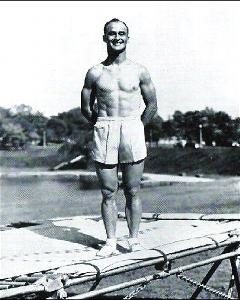โปรโมชั่น: ซื้อแทรมโพลีนภายในเดือนสิงหาคมนี้รับส่วนลดทันที บาท
Trampoline Bangkok
Ready to jump?
Trampoline Bangkok! Ready to jump?
Trampoline Bangkok A bit of history
A game similar to trampolining was developed by the Inuit, who would toss each other into the air on a walrus skin. There is also some evidence of people in Europe having been tossed into the air by a number of people holding a blanket; Mark in the Wakefield Second Shepherds’ Play and Sancho Panza in Don Quixote are both subjected to blanketing – however, these are clearly non-voluntary, non-recreational instances of quasi-judicial, mob-administered punishment. The trampoline-like life nets once used by firemen to catch people jumping out of burning buildings were invented in 1887.
If you have the space,
we have the right trampoline for you.
Once you installed it, wait till the kids
come back from school
The 19th-century poster for Pablo Fanque’s Circus Royal references performance on trampoline, though the device is thought to have been more like a springboard than the fabric-and-coiled-springs apparatus presently in use.
These may not be the true antecedents of the modern sport of trampolining, but indicate that the concept of bouncing off a fabric surface has been around for some time. In the early years of the 20th century, some acrobats used a “bouncing bed” on the stage to amuse audiences. The bouncing bed was, in reality, a form of small trampoline covered by bedclothes, on which acrobats performed mostly comedy routines.
Testimonials
Almost any age
Good to start at a young age
According to circus folklore, the trampoline was supposedly first developed by an artiste named du Trampolin, who saw the possibility of using the trapeze safety net as a form of propulsion and landing device and experimented with different systems of suspension, eventually reducing the net to a practical size for separate performance. While trampoline-like devices were used for shows and in the circus, the story of du Trampolin is almost certainly apocryphal, and no documentary evidence has been found to support it.
First modern trampolines
The first modern trampoline was built by George Nissen and Larry Griswold in 1936. Nissen was a gymnastics and diving competitor and Griswold was a tumbler on the gymnastics team, both at the University of Iowa, USA.
They had observed trapeze artists using a tight net to add entertainment value to their performance and experimented by stretching a piece of canvas, in which they had inserted grommets along each side, to an angle iron frame by means of coiled springs.
It was initially used to train tumblers but soon became popular in its own right. Nissen explained that the name came from the Spanish trampolín, meaning a diving board.
Nissen had heard the word on a demonstration tour in Mexico in the late 1930s and decided to use an anglicized form as the trademark for the apparatus.

Our trampoline warehouse and office are conveniently located on:
34/1 Kumklao Road (corner soi 24)
Lamplatiew, Latkrabang
Bangkok 10520
Thailand
Office hours: Mon-Fri 08:30 – 17:00
Tel: +66 02 060 2662
Email: admin@trampolinebangkok.com
LINE : hbecthailand
